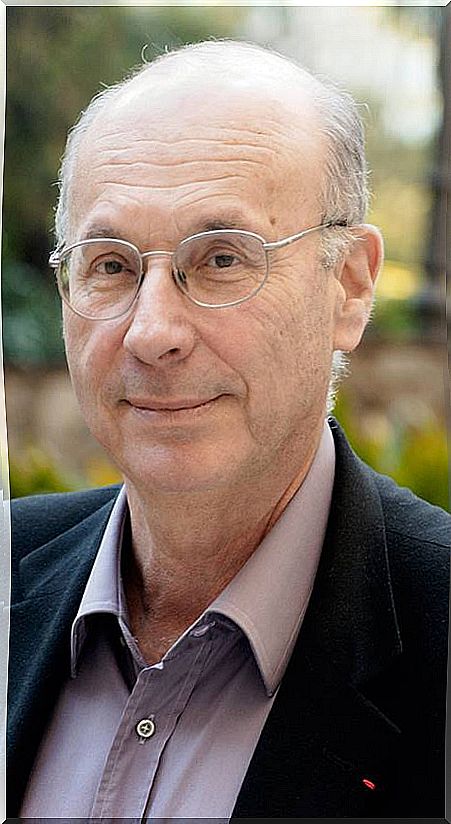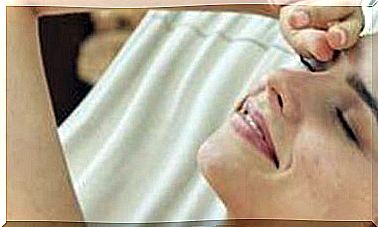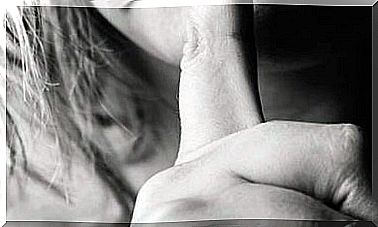“Writing And Words Can Transform Suffering”
The creator of the concept of resilience, so necessary in these difficult times, explains in his new book I wrote suns at night (Ed. Gedisa) how the Writing and the power of words can transform suffering. If when writing we question how what causes us suffering has happened and we ask ourselves who has helped us … then memory is reorganized and a therapeutic effect is produced.

Boris Cyrulnik, the creator of the concept of resilience – who has just published the book I wrote suns at night . Literature and resilience (Ed. Gedisa) – he had to be in Barcelona just when the health emergency broke out, which prevented him from traveling and presenting his book …
– How much is this experience going to change us?
–After major natural disasters, be they floods, famines, droughts or epidemics, we are forced to evolve. The values that governed us change and a new way of living is reorganized. When the virus dies, we will take stock of the dead, what it has meant economically and, based on that, new priorities will have to be established.
Some changes derived from this pandemic can be positive, depending on who we give the power to decide them.
The question is whether we are going to do the same as before the epidemic or if, on the contrary, we are going to become aware, to modify agriculture and livestock, to stop encouraging food to circulate around the planet and to slow down our capacity. of movement. Will we decide to reduce our excessive consumption of meat, which largely causes this virus? Will we continue to move excessively (which has contributed to the spread of the coronavirus and damaging nature)? We cannot forget that this epidemic results from our sprint culture that we impose on ourselves and the little ones.
– Why does it not make sense to subject children to that sprint culture you are talking about?
–In the northern European countries, where the rhythm of childhood development is respected, the little ones obtain excellent results in school and maintain better relationships.
In the PISA tests they get the gold medal, and without paying the price that those of Korea, Japan and China pay, where, despite their good school results, there is a huge suicide rate among girls and they are lost to many young people who lock themselves in a room and turn 30 without learning any profession. Is school success worth it if it leads to catastrophic human outcomes?
– “By writing I have repaired my torn soul,” he says. Write cure?
-It depends. If we write to ruminate on these misfortunes and always say the same thing, the only thing we achieve is to aggravate the post-traumatic syndrome. To transform suffering, we must write with the intention of reorganizing the representation of the trauma, that is, questioning how it happened in this way, who has helped me … Then memory is reorganized and a therapeutic effect is produced.
–He maintains that reverie is another way to alleviate suffering…
–Freud was already talking about the refuge that reverie represented because when reality is horrible or we are very unhappy, this defense mechanism is triggered, a state that allows us to dream in that later on we will live near the sea, we will be rich, we will have friends, a family …
This dream of gratification alleviates suffering. We can stay in this state of reverie without facing the problem or dreaming and then putting ourselves to work to make this dream come true: that is to enter into resilience.
–In your last book you talk about people who suffered the loss of one of their parents and ended up being writers. Is that daydreaming?
–This is generalizable to all boys and girls: when the mother is present, she solves the problems of the boy or girl, thereby feeling protected or protected. However, when she inevitably goes to do the shopping or to work, that is, when the separation occurs, some feel desperate, as if suffering from post-traumatic syndrome.
Most fill this absence by immersing themselves in a dreamy state: they draw a heart or something else, dreaming that when Mom returns they will give her the drawing and hug each other. Thus, children respond creatively to the lack of the mother who must be absent at one time or another. This reasoning also applies to orphans. That is why there is an abnormally high number of orphans among writers, film and theater people.
–You put Gerard Depardieu as an example of resilience…
–Depardieu was not an orphan but he lived in an environment lacking in words. Neither her mother nor her sisters spoke. Neither was her father, a kind man and probably a bit of an alcoholic. He lived surrounded by great verbal misery, but he discovered the magic of words. He read and began to use other people’s words when he was stealing. He was a small criminal who carried Molière in his pocket.
He had the opportunity to study acting with Marguerite Duras, who taught him the happiness of words that allowed him to start his career in film.
– There are people who manage to be resilient and others do not, but it seems that it is not genetic …
– Epigenetics has shown us that genetics has little to say in psychology. Most of the factors that determine the human condition do not depend on genetics, but on how we develop in the womb of our mother, what our home is like, our culture, etc.
I was with a pair of real twins, both neurologists, who went through painful experiences and both fell into great depression. Six months later, one of them triggered a resilience process and the other did not. And it is that resilience is triggered by a convergence of multiple factors.
After the misfortune, one of them was able to lean on his wife, who gave him the security he needed. On the other hand, the other twin could not do the same and his partner did not know or could not give him back the security he needed.
–Do love ties help develop resilience?
-Exactly. If after a major loss we are left alone, as happened to the orphans in Nicolae Ceausescu’s Romania, it is very difficult to move forward. Less than 20% managed to get ahead.
On the other hand, those who suffered the same affective deprivation but were later surrounded by affection were able to trigger a process of resilience and learned to love.
–Another determining factor for the development of resilience are the first sensations that the baby feeds on. Why?
–Although, if this fails, other resilience factors can be found, indeed this is the most spontaneous and constitutes the starting point. When our mother has felt safe thanks to the support of her husband, her family and her culture, she gladly carries the child in her womb and is happy to take care of him.
With this, the baby will find a sensory niche that will nourish him and make him feel safe, so that when he has to face a difficulty he will know how to do it. When this starting point does not occur and the baby has been deprived of this sensory niche, in the face of a misfortune it will be more difficult to trigger a process of resilience.
–Does the first thousand days of life shape the baby’s brain and determine its resilience?
Effectively. The first thousand days in a baby’s life are essential to promote their resistance to difficulties; and that is why the French president, Emmanuel Macron, has appointed me president of a commission to establish how these first thousand days in the baby’s life should be organized so that mothers can feel safe and surrounded by a trustworthy environment, so that their babies develop a secure attachment, essential for your future.
Ethology studies show that skin to skin is decisive.
We have seen that in mammals, when the mother is sick or dies and cannot lick or touch her baby, then the young die from occlusion. If rats do not trample their young, they die when they are not stimulated. In other species, when the mothers do not lick the belly of the young, it dies too. Marshall Klauss and John Kennel, two pediatricians, resumed this observation by applying it to human newborns.
– And what did they observe?
–They asked that the umbilical cord be cut later in the delivery and the baby be left on the mother’s womb for more time. This delay in separation allowed the transmission of an additional 520 milliliters of blood through the cord.
In addition, the baby had time to become familiar with the mother’s scent and, in turn, the mother became familiar with the baby’s touch, which facilitated a better development of attachment. Based on their conclusions, pediatric culture now gives much more importance to skin-to-skin.
– But, in addition to the mother’s presence, her emotional availability is necessary, right?
-Yes. In Marseille, a study was conducted in which mothers were filmed while breastfeeding or bottle feeding their babies. It was observed that when there was visual contact of mothers with the baby while breastfeeding or bottle feeding, this gave them security.
They were asked to watch television or make a phone call while feeding the bottle or breast, and it was found that when they picked up the phone or began to watch television, the babies slowed down their rate of breastfeeding or even stopped.
If a woman is unhappy because she feels precarious or because her husband beats her or does not offer her security or because she is in a warlike context, then the mother looks at her baby less, which decreases the quality of the baby’s nutrition and the quality of the baby. link between them. But it is important to clarify that the cause is not the mother but the misfortune that hits her.
– Should we talk about our traumas to our children?
–Everything depends on how we explain the stories… We must explain all the stories of pleasure and laughter that we can, also the decisive stories, but we must not explain everything.
Stories of rape and incest should be kept secret. Although these secrets disturb the development of the child, revealing them can be even more counterproductive. Therefore, there is much to say, but not everything. Why do children in countries at war play at being soldiers? Because this game allows them to control the anguish that this situation generates.
–Then it is better to be silent?
-No. By keeping quiet, we transfer the anguish derived from the traumatic episode. But if we talk too much, as Primo Levy did, we transmit the trauma. You have to talk about trauma in an artistic way, as I saw the educators from Martinique do when I was there. There were many abused and abandoned girls and boys and the educators taught them cartoons to later discuss with them what they had thought of the stories and how they felt about what they had seen, often related to their own life stories …
When I was in the Congo, working with child soldiers, I also limited myself to explaining to them the wars I had lived through, the Second World War as a child and the war in Algeria when I finished my medical degree. I would tell them stories and then ask them about them. He gave them the floor without antagonizing them or forcing them to speak.
This is the function of films and stories that we find in books or see in the theater: they invite people to speak, but whenever one wants to speak.
If you have been interested in this interview …
- You can buy the book I wrote suns at night. Literature and Resilience (Ed. Gedisa) by Boris Cyrulnik here.









